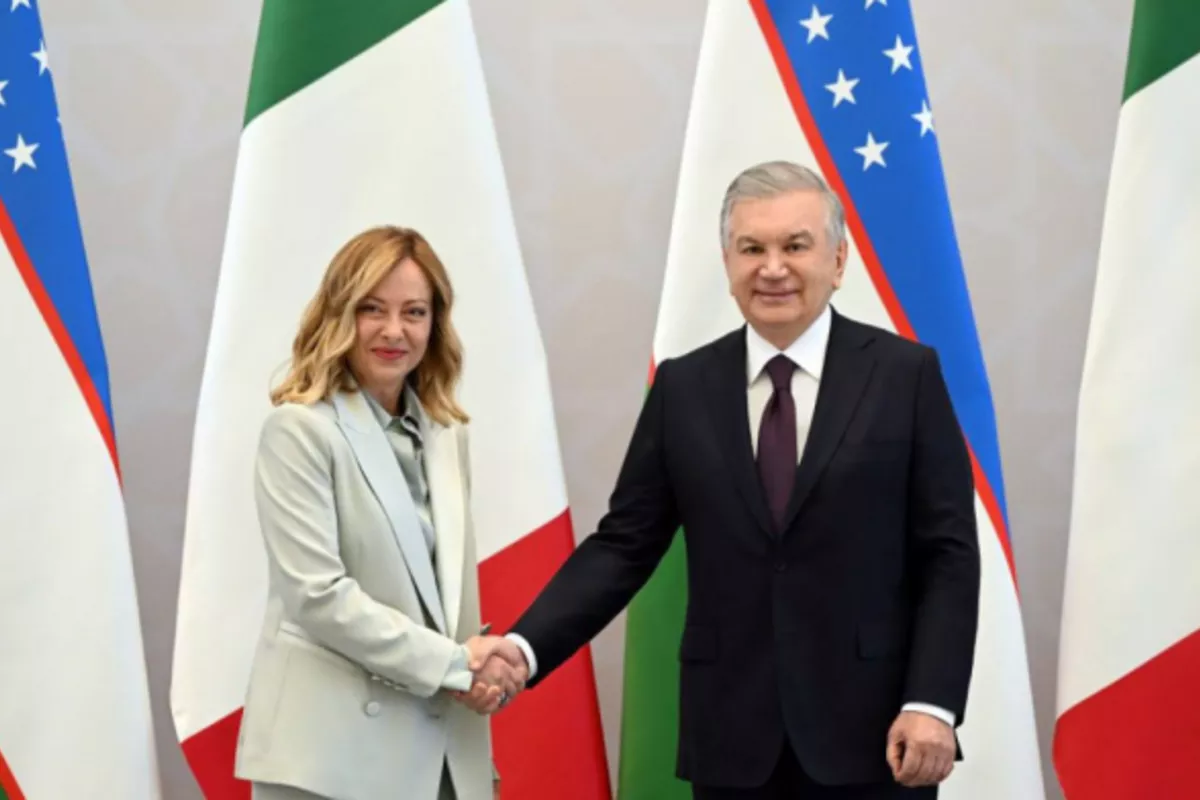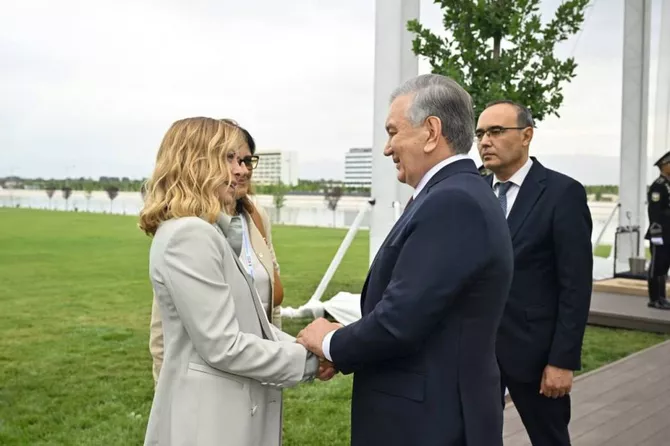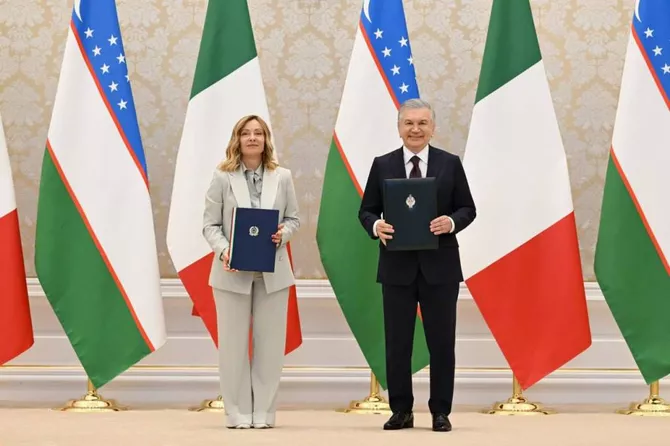
Photo credit: Press service of the President of Uzbekistan
Europe has undoubtedly stepped up its activity in the Central Asian region. April 2025 was marked by the first “Central Asia - European Union” summit, during which European Commission President Ursula von der Leyen announced the dawn of a “new era” in relations between the two regions.
At the same time, the parties agreed on a €12 billion commitment from Brussels as part of the Global Gateway initiative to support infrastructure, raw materials, renewable energy, and digitalization across Central Asia.
Now, on May 30, Astana will host the first summit bringing together the heads of Central Asian states and Italian Prime Minister Giorgia Meloni. Until now, only Germany had held a similar high-level meeting with Central Asian countries, back in 2023. According to Italian Foreign Minister Antonio Tajani, Rome aims to intensify cooperation in the fields of energy, transport, infrastructure, and water resource management. Italy, he noted, has leading companies “to which we want to assign a key role, and this is why Central Asia is one of the priorities of our new Export Plan.” As such, “the entire national system stands ready to help build strong bridges between Rome and Central Asia.”

Photo: uza.uz
As part of her trip, the Italian Prime Minister will also hold bilateral meetings in Uzbekistan and Kazakhstan. In Kazakhstan, high-level talks will be held on strategic partnership, economic cooperation, energy, trade, and international security. Cultural and humanitarian exchange, as well as the strengthening of interregional ties, will also be on the agenda.
Ties between Italy and Uzbekistan have deepened considerably: in 2023, the two countries officially formalized their strategic partnership. According to public sources, 35 out of the 54 joint ventures with Italian capital currently operating in Uzbekistan are wholly based on foreign direct investment. In the Jizzakh region, an Italian-supported facility is already operating to cultivate and process saffron and other medicinal plants. It’s also worth noting that one of the first foreign universities in Uzbekistan was the Turin Polytechnic University.
Italy’s increased engagement in the region is by no means a spontaneous development. In 2023-2024, Italy held business forums with Tajikistan, Uzbekistan, and Kazakhstan. In the spring of 2024, the Italian Agency for Development Cooperation and a water systems management company signed a declaration of intent with the Central Asian countries on “defining an operational and functional model for environmental recovery and regeneration in polluted areas,” including a pilot project in the Aral Sea zone.
Moreover, three ministerial conferences under the “Central Asia - Italy” format have already taken place. At the most recent one, Rome reaffirmed its readiness to contribute to the development of Central Asia’s railway networks and seaports to enhance the competitiveness of local businesses, secure global supply chains, and support the fight against climate change.
On May 17, 2025, a roundtable titled “Central Asia - Italy” was held in Rome, organized by the diplomatic missions of Central Asian countries in cooperation with Italy’s Ministry of Foreign Affairs. The event was also attended by scholars and political experts.
All this clearly indicates that Europe, and Italy in particular, now view Central Asia as a critical geopolitical link-especially amid growing global instability. One of the key themes of the upcoming summit will be the development of strategic partnerships, the strengthening of trade and economic ties, and mutual understanding in the fields of energy and sustainable development. Regional security and humanitarian cooperation will also be in focus. It is highly likely that the Trans-Caspian International Transport Route (also known as the Middle Corridor) will be discussed as well. And naturally, a number of important agreements are expected to be signed.

Photo credit: Press service of the President of Uzbekistan
Italy’s increased activity in Central Asia is part of a broader European strategy to deepen ties with a region that boasts vast resources, vital transit potential, and rising political significance. For Italy, this is not merely economic outreach-it is a strategic move to secure influence amid intensifying competition from China, Russia, Türkiye, and the Gulf states, all of which have long been active in the region.
For their part, Central Asian countries are eager to diversify their foreign partnerships and attract stable, long-term investment. Faced with the challenges of global sanctions regimes, supply chain disruptions, and climate change, they increasingly see Europe not just as a market but as a technological, financial, and institutional partner.
The summit in Astana, featuring Prime Minister Giorgia Meloni, may prove to be a milestone in shaping a new framework for cooperation-one in which Central Asia is no longer viewed as a "backyard" of major powers but as a fully sovereign and equal player in global affairs.
Now comes the moment when bold declarations and symbolic visits must be translated into concrete projects and long-term investments. The extent to which Italy-and the EU as a whole-can deliver on their promises will determine the role they will play in the future of Central Asia.
Share on social media